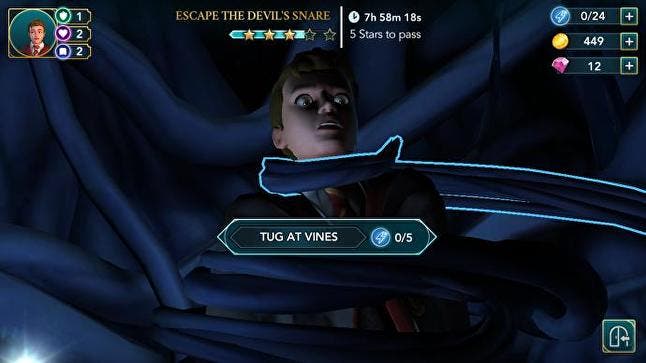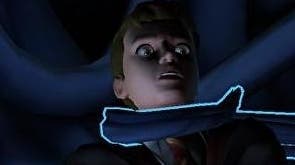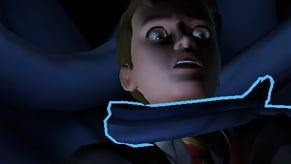Harry Potter mobile game maker defends child-choking scene which asks you to wait or pay money
"I don't think being in a perilous situation is unique to our game."
Harry Potter: Hogwarts Mystery's infamous scene which asks you to pay money or wait while your child avatar is strangled by a magic plant has been defended by developer Jam City.
The scene is designed so it coincides with the first time you run out of energy (Hogwarts Mystery uses a typical mobile game energy system where you either wait, or pay up to speed things along). If you don't pay, you watch your young character continue to be strangled.
It's a moment which defined the early response to the game a year ago - but which has not damaged its long-term success. In less than a year, Hogwarts Mystery had passed the $100m revenue mark.
Now, speaking to Eurogamer's sister site GamesIndustry.biz, Jam City boss Yosh Yguado likened the scene to other moments of peril in the Harry Potter franchise - and suggested its cliffhanger nature was akin to other serialised storytelling.

"We've tried to create a game and write a story that has stakes, that has dramatic moments that reflect the level of drama and emotion that you see in the films and the books," Yguado said. "I don't think being in a perilous situation is unique to our Harry Potter game when you compare it to the films and the books.
"I don't think our game is more violent or more scary than any of the other Potter [stories]. Without a doubt, we leave you at a cliffhanger... It seems like if a book's chapter ends at a dramatic moment, sometimes a dangerous moment and then continues after that, we're okay with it. If a film scene or even a television scene ends at a dramatic moment, and then the next episode or scene resolves that scary scenario, we're okay with it. I'm hoping we can also measure our game by the same [standard]."
All well and good, but waiting a week for a TV show's next episode is a bit different to holding out your hand and asking for money to stop a Hogwarts student version of yourself from being choked right in front of you. It's a point GamesIndustry.biz also made.
"I don't think it conflicts with the business model," Yguado continued, "in the same way that Dickens wrote for magazines before he wrote for books, or television writers write for seasons, we're writing for interactive episodes and chapters. That requires a different type of writing with a different cadence that I believe can be true to the world of Harry Potter."
There's more about how Harry Potter: Hogwarts Mystery handles the pacing of content and the overall conflict of monetising a world-famous franchise aimed at children over in the full interview on GamesIndustry.biz.




